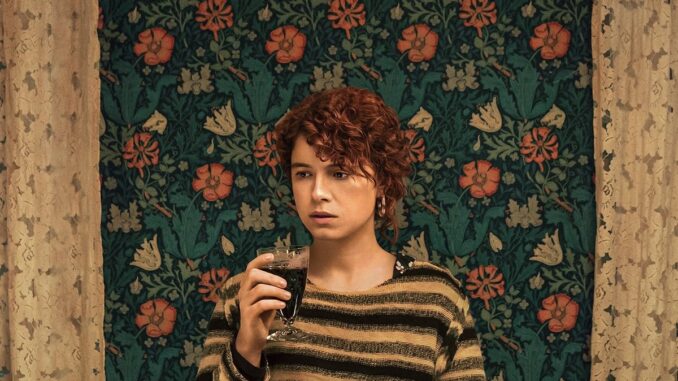
“‘Most people are other people. Their thoughts are someone else’s opinions. Their lives a mimicry, their passions a quotation.’ That’s an Oscar Wilde quote.”
And that was a quote from “I’m Thinking of Ending Things,” a film that I’ve been thinking quite a lot about over the past few days. Perfectly adapted for the screen by Charlie Kaufman, the psychological thriller is based off of the 2016 novel by Iain Reid.
The story is about a young woman named Lucy . . . or is her name Lucia . . . maybe Yvonne? Or maybe the plot revolves around a young man named Jake. Or is he an old man named Jake? The film, on the surface, is about a woman meeting her boyfriend’s odd parents for the first time and having second thoughts about their relationship. Beneath the surface, the movie is a family drama, a ghost story and an investigation into the horror that is loneliness and missed opportunity.
“I’m Thinking of Ending Things” is undoubtedly confusing. I watched it twice and read the novel (which almost served as a Sparknotes for the film). Although I’m familiar with the unobvious twist, I am still left with questions.
Questions are the heartbeat of Kaufman’s film, however, so the fact that I’m left with them is a non-issue. In Reid’s novel, the stream of consciousness narrative drives the plot as the characters drive on a dark, snowy country road — all the while ruminating over life’s unsolvable equations.
The film adaptation is no different. Right down to the interior monologue narration from the protagonist, the film pays rightful homage to the novel, while making some aspects of the story more clear, and some aspects far less.
Much of the film is spent in the car listening to Jake (Jesse Plemons) and Lucy (Jessie Buckley) talk philosophy, science, art and psychology. Themes of reality, age, time, mental illness and suicide all ebb and flow in and out of one another. While this may sound monotonous, the brilliant performances from Plemmons and Buckley give the (sometimes mind-numbing) philosophy color, shape and texture. You feel the character’s anxiety like pins and needles when your leg has fallen asleep: it is uncomfortable. Simultaneously, Kaufman blends the sights and sounds of the chaotic blizzard, into the chaos of the character’s inner worlds. This creates an uneasiness that stretches beyond the obvious suspense response in a normal horror-flick.
“I’m Thinking of Ending Things” asks: who are you, who are the people you love, why do you love them, and where do you stop and they begin? It also asks: if one having a mental illness is like one being a pig infested with maggots . . . is one a pig infested with maggots? Gosh, I hope not.
Once the couple arrives at Jake’s parents’ farmhouse, the surrealism — captured effortlessly in the cinematography from Łukasz Żal — moves to the forefront. The horror component of the film is mostly conveyed through common horror tropes (yes — there is a basement with scratches on the door and a mysterious caller) but these tropes are acknowledged and even mocked by characters in the film.
The real horror lies in the darkest parts of the human condition externalized — often through Jake’s parents (Toni Collete and David Thewlis) — who eerily become older, younger and older again. All this ageing and de-ageing happens over the course of dinner and dessert, of course. How do we cope with the ageing and inevitable death of our parents? How much of what we try to accomplish is for our parents’ approval? Pondering this is scarier than any axe murder or bloodied, walking doll.
Lucy says, “Other animals live in the present. Humans cannot, so they invented hope.” Once you dig through the horror, the sadness and the philosophy, “I’m Thinking of Ending Things” is, in essence, a story of hope — the kind of hope that clings, for better or worse, to the very end. I’m thinking you should watch it.
